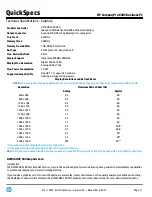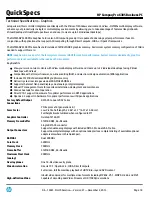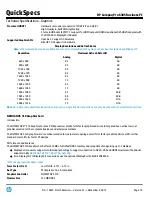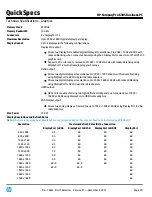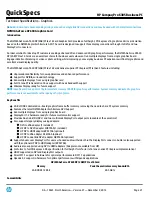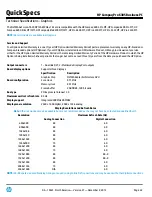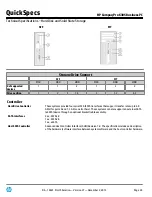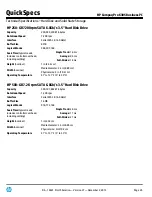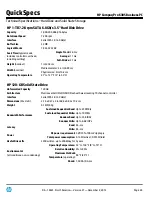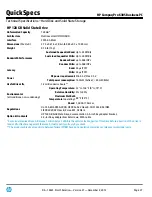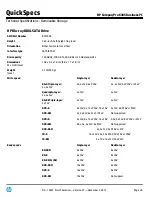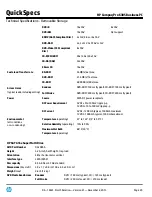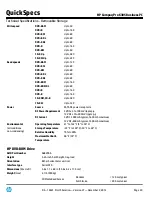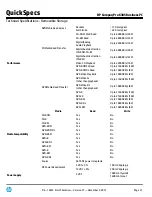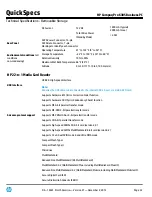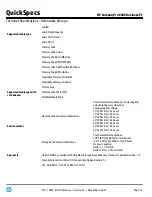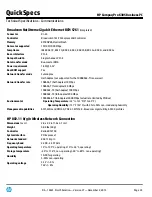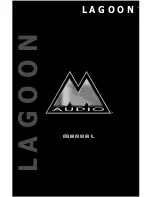
Introduction
:
HP Serial Advanced Technology Attachment (SATA) Hard Drives maximize the performance of HP Business PCs by providing the
technologies to meet your increasing storage demands with high-capacity drives offering superior reliability and performance.
SATA provides faster data transfer speeds, better system cooling airflow, more bandwidth, more headroom for speed increases in
future generations and better data integrity. A next-generation technology, the SATA interface connects hard drives to the PC platform
enabling easy aggregation of multiple hard drives into a single PC. This offers you the additional benefits of dedicated bandwidth, the
ability to more easily identify device failures and scalability. The HP Compaq Pro 6305 Business PC supports the latest SATA 6.0Gb/s
specification.
HP Drive Lock
HP Serial ATA Hard Drives offer enhanced security via a new Drive Lock. When enabled, this ATA security feature set prevents software
access to user data on the drive until one or two user-defined passwords are provided.
SMART IV Technology
Self Monitoring Analysis and Reporting Technology (SMART) hard drive technology allows hard drives to monitor their own health and
to raise flags if imminent failures are predicted. If the drive determines that a failure is imminent, the SMART hard drive technology
enables the intelligent manageability or management software to generate a fault alert. While the current versions of SMART hard
drives do a good job monitoring the data on the hard drive media, the ever increasing emphasis on reliability and quality has promoted
HP to implement SMART IV technology which constantly checks that the data flow from host interface to media and media to host
interface is not compromised. This is accomplished by inserting a 2 byte parity code into every 512 byte block in the data path of the
hard drive's Cache RAM. This unique parity checking performed by HP's SMART IV technology hard drives, allows for more complete
error detection coverage encompassing the entire data path between the host and the hard drive.
Smart IV is also known as IOEDC: I/O Error Detection Code.
Native Command Queuing
NCQ or Native Command Queuing is a SATA protocol extension that allows the hard drive to have several write or read commands
outstanding at the same time. In contrast, normal non-queued operation requires each command to be completed before the next
command is issued by the host system. Queuing allows the drive to complete the commands in the order that allows for best overall
throughput. It also involves an advanced method of transferring data to or from the host, called First Party Direct Memory Access
(FPDMA), which allows the hard drive and the host controller to manage the data transfers for multiple outstanding commands, without
involving the host processor. NCQ can contribute to better performance but the results are dependent on many factors, including the
access patterns of the various applications and operating system functions that are initiating drive accesses. Enabling NCQ features in
the hard drive requires AHCI support from the host system BIOS, controller, and driver.
Note:
GB = 1 billion bytes. Actual available capacity is less.
QuickSpecs
HP Compaq Pro 6305 Business PC
Technical Specifications – Hard Disk and Solid State Storage
DA - 14425 North America — Version 21 — December 2, 2013
Page 23









